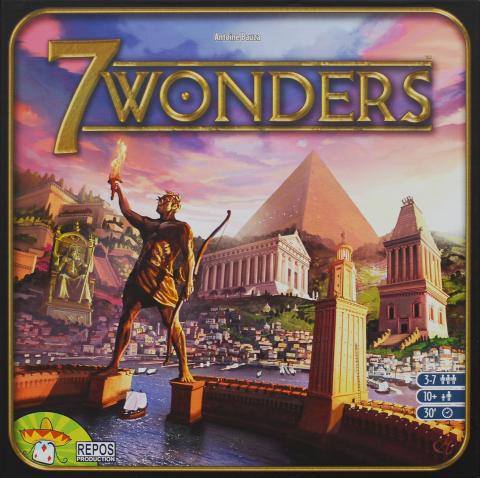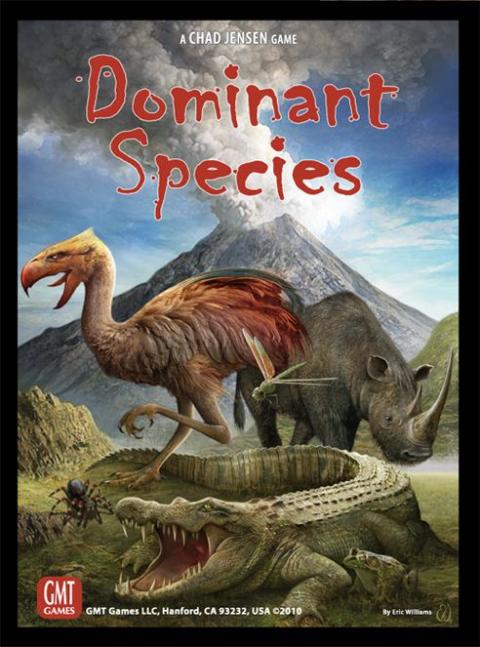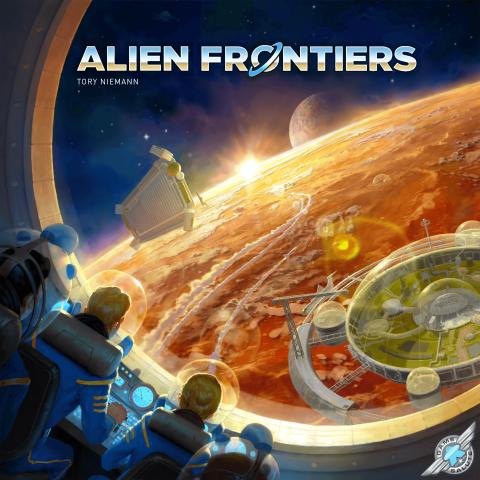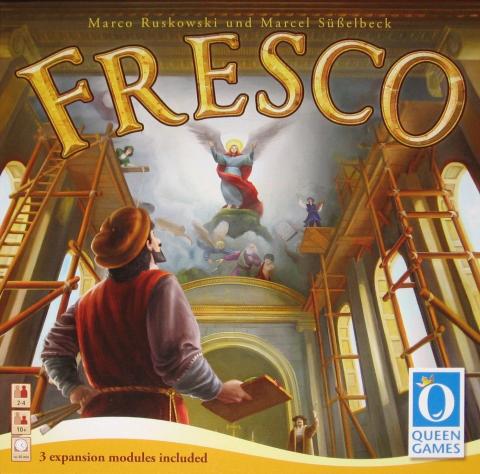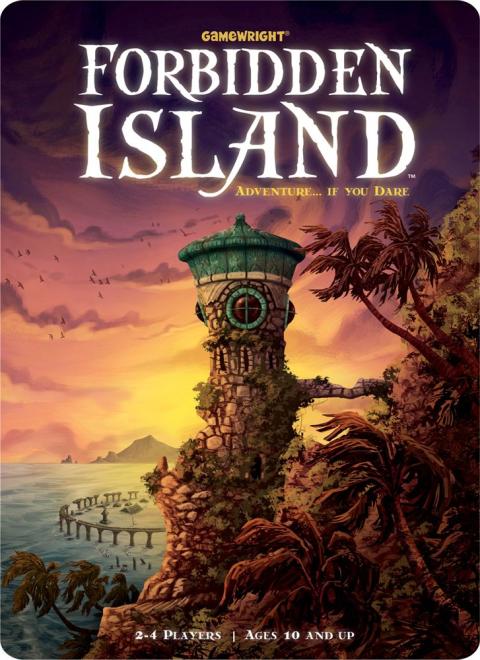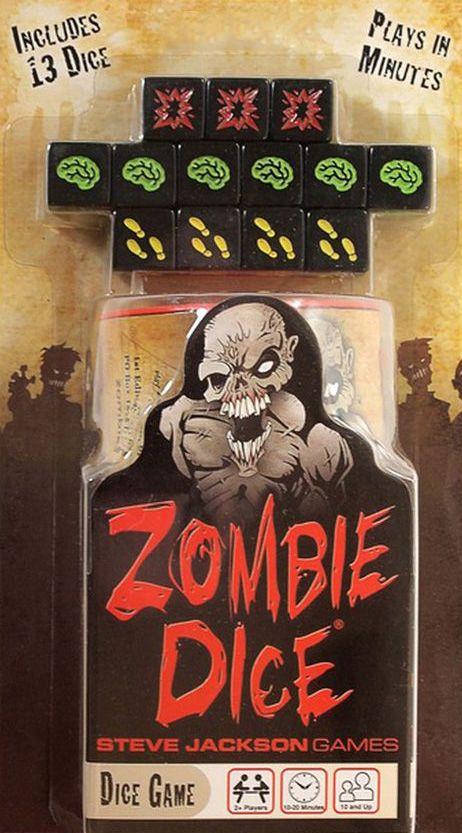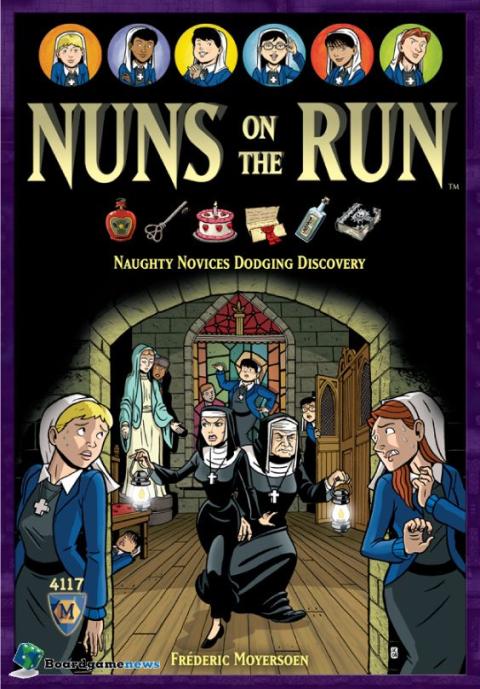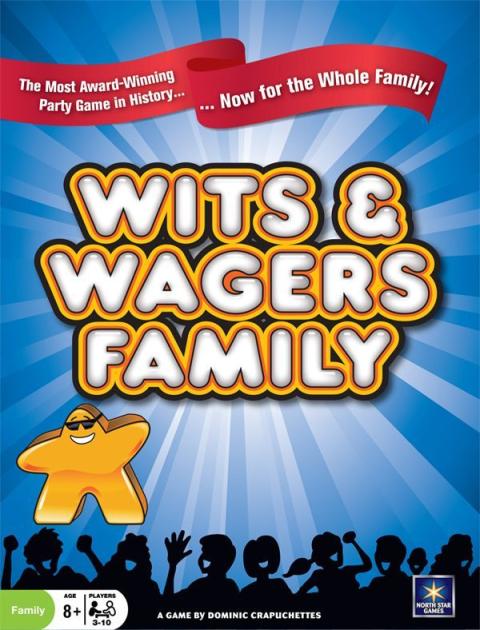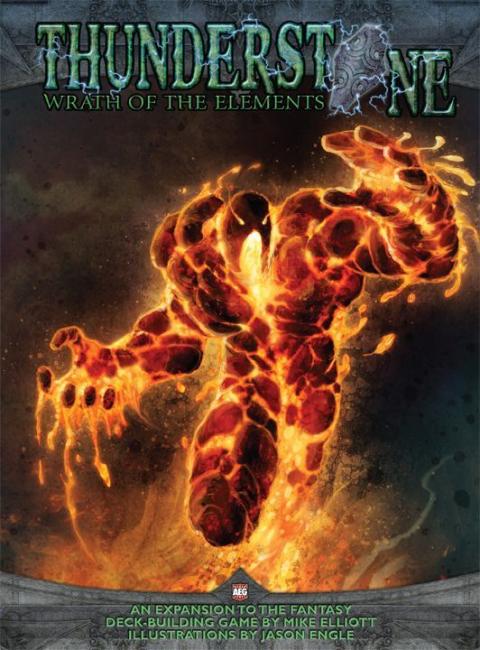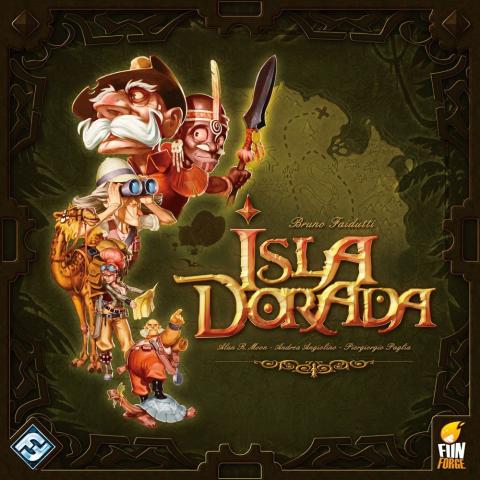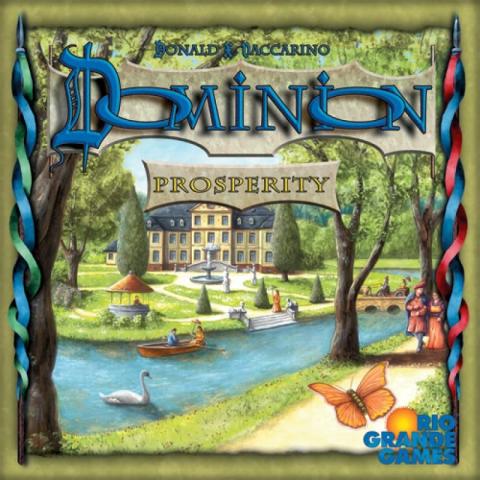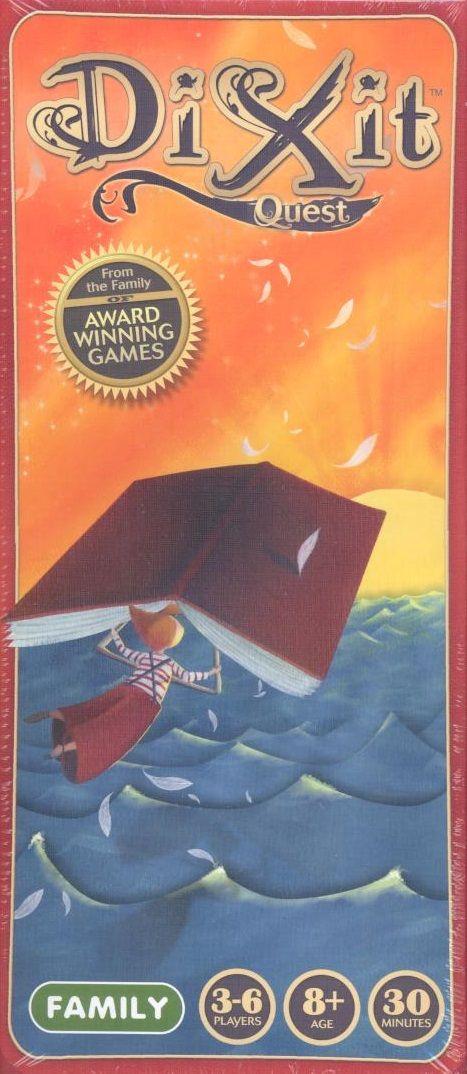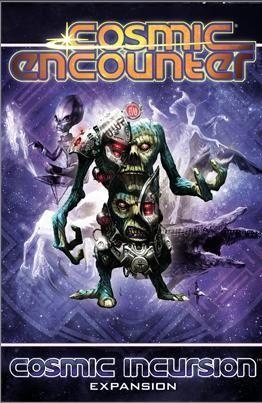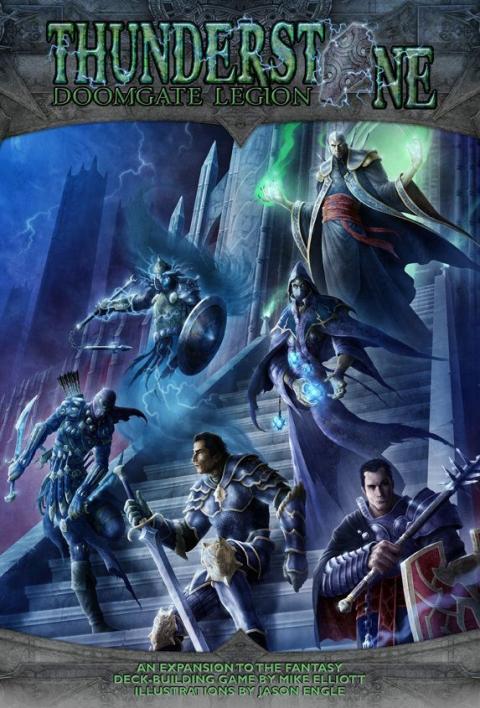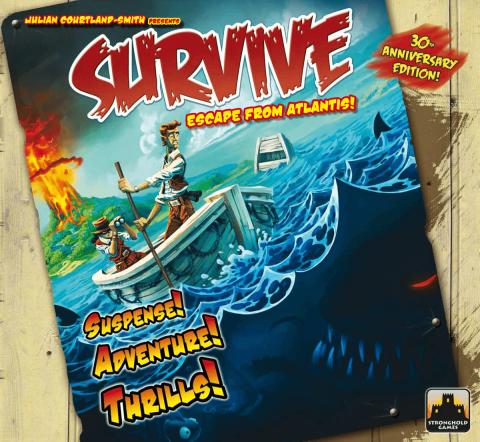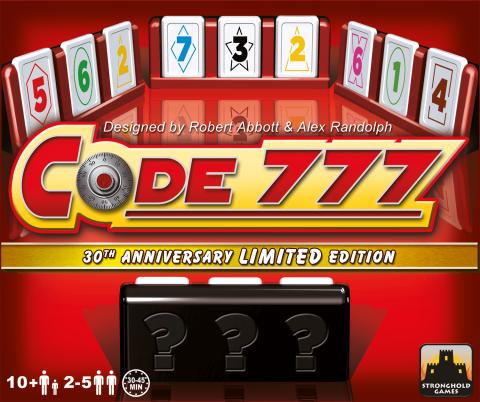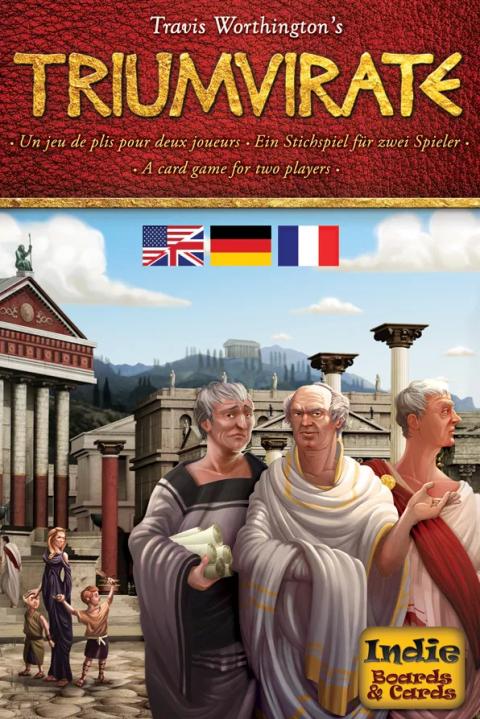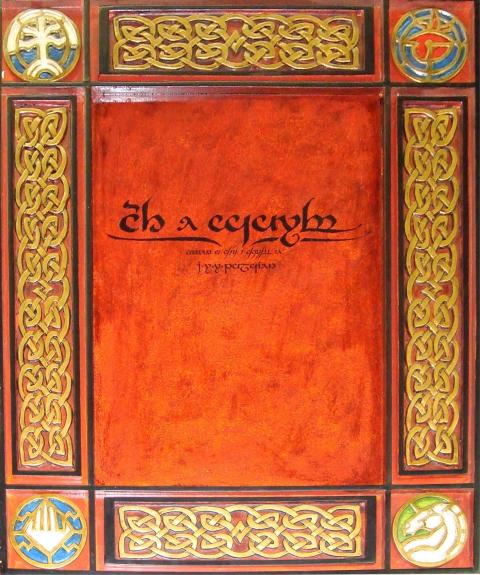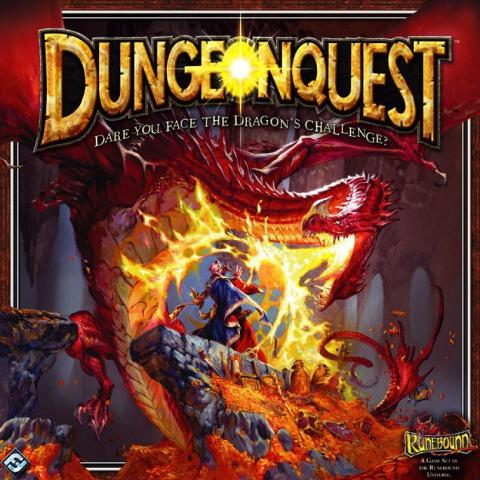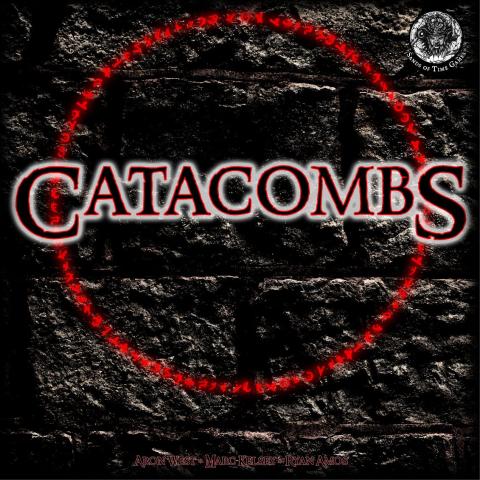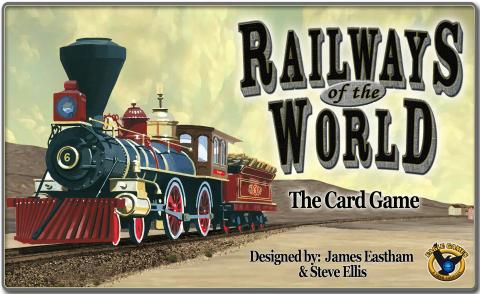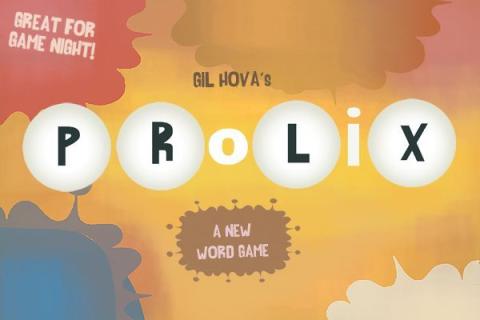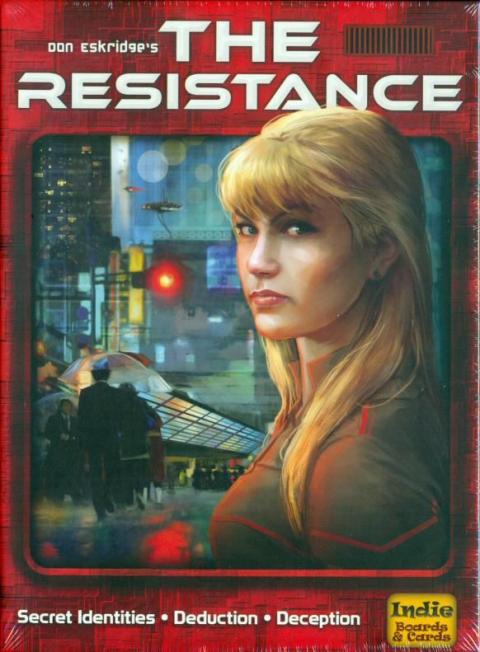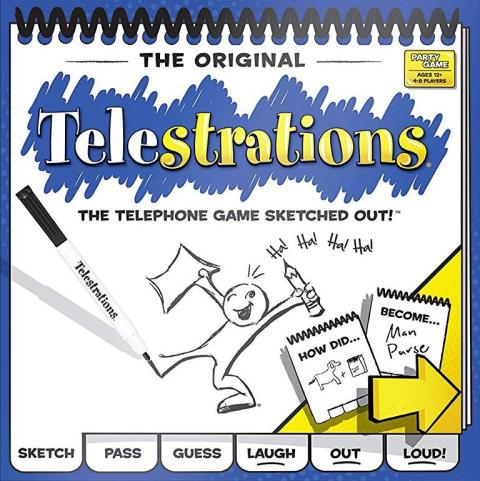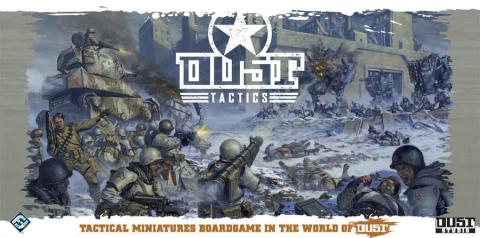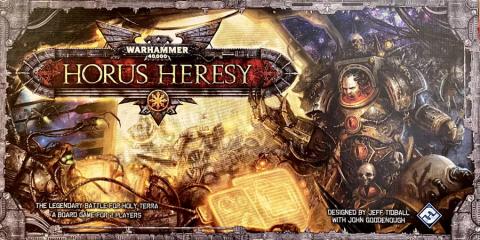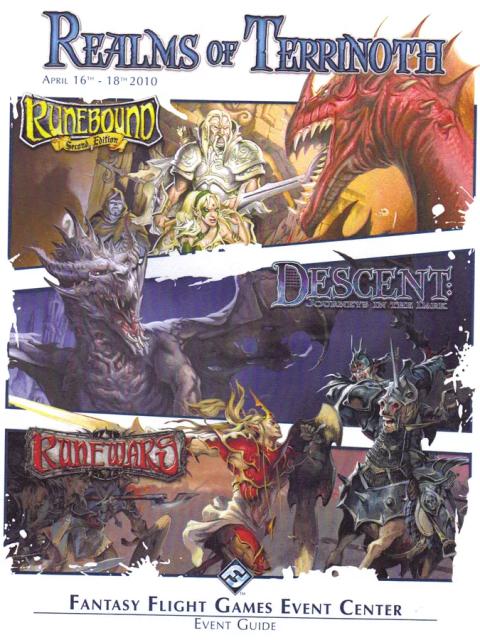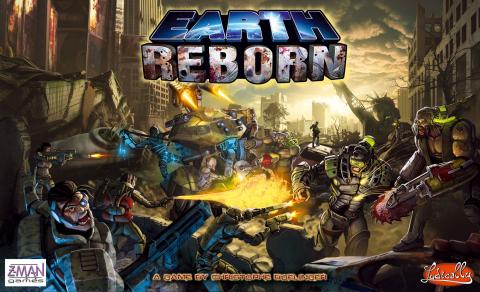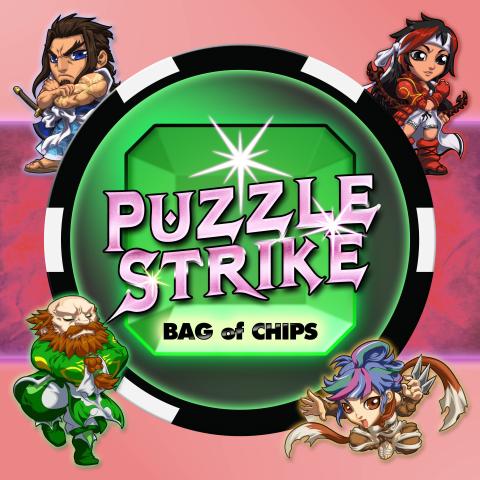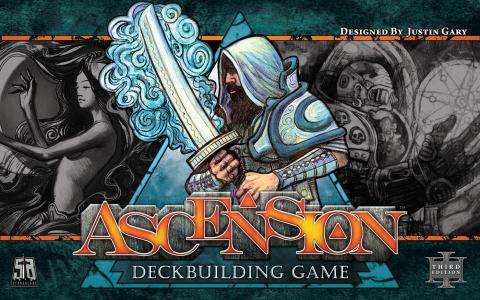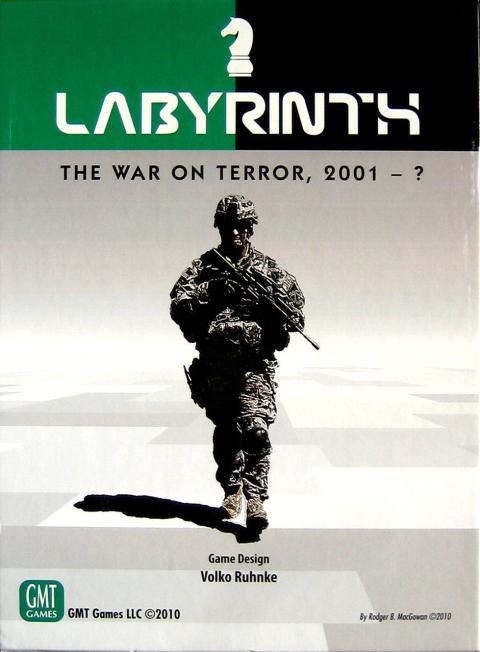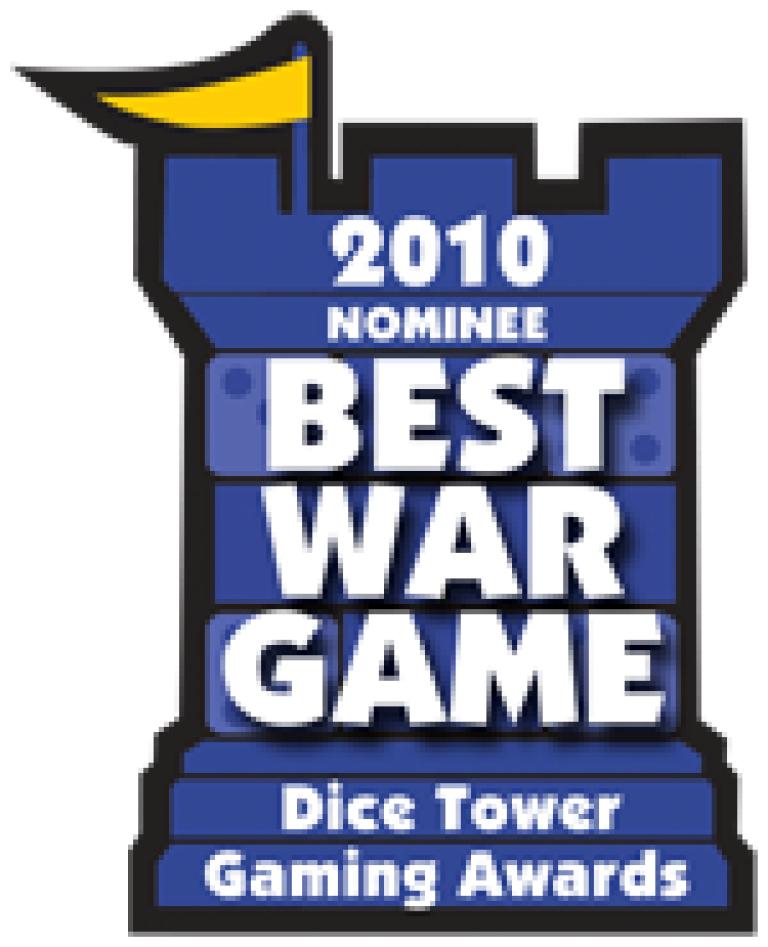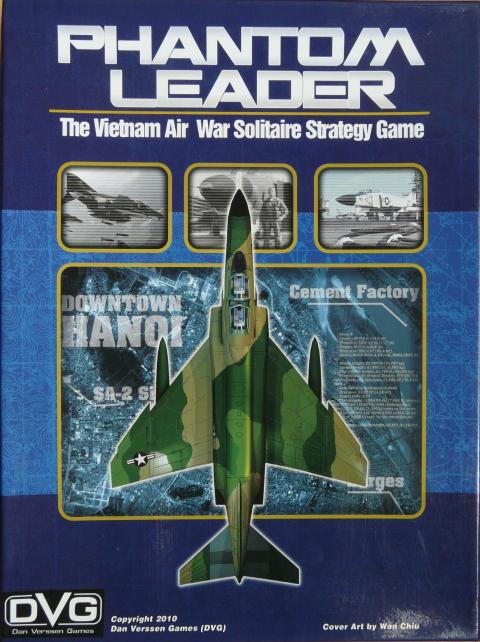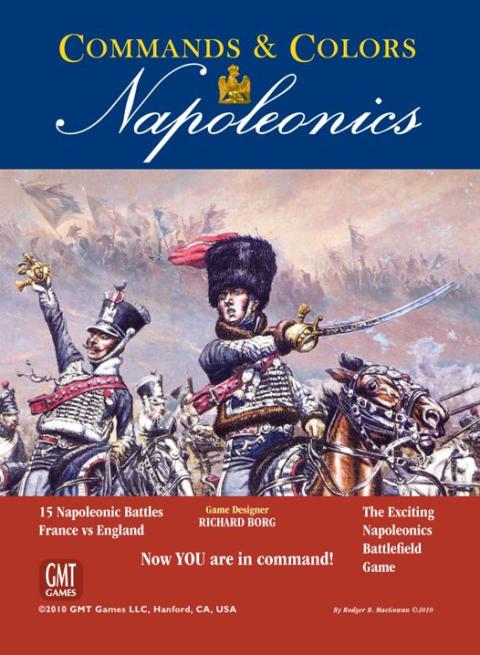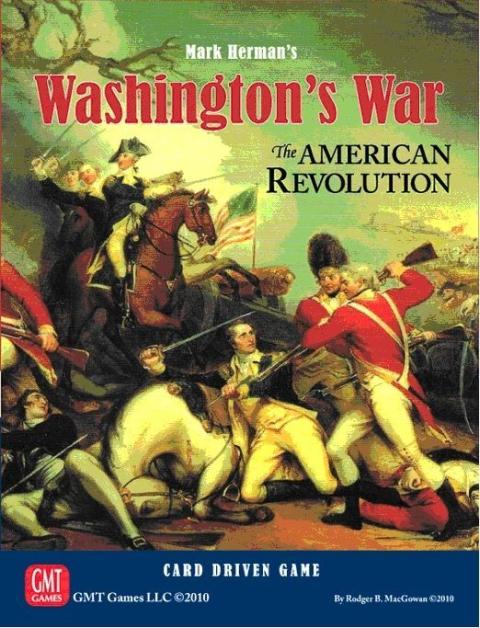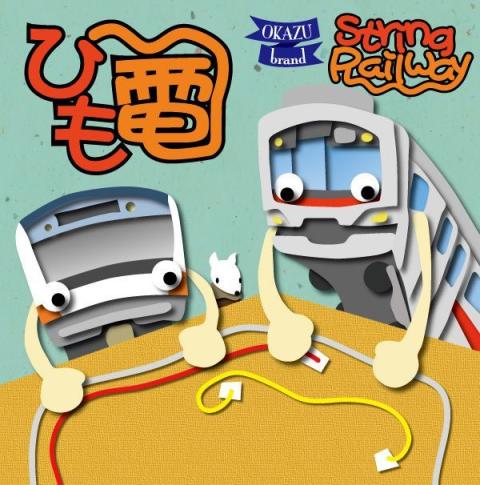Presenting the nominees of the fourth annual Dice Tower Awards for games released in 2010 in categories including artwork, small publisher, new designer, and the game of the year!
Game of the Year
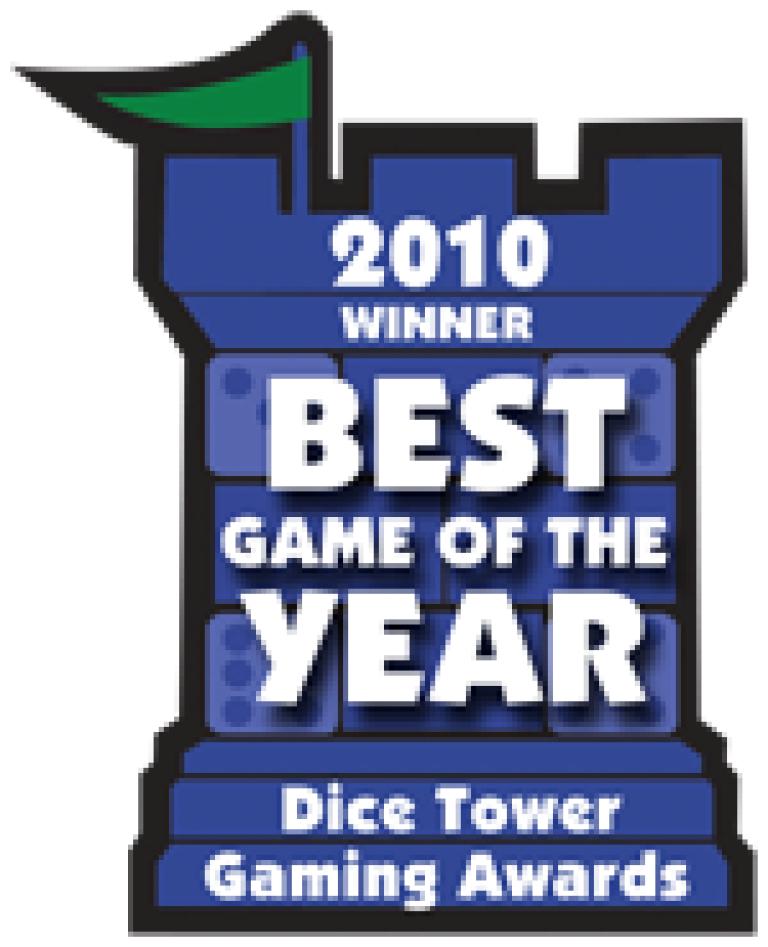
You are the leader of one of the 7 great cities of the Ancient World. Gather resources, develop commercial routes, and affirm your military supremacy. Build your city and erect an architectural wonder which will transcend future times.
7 Wonders lasts three ages. In each age, players receive seven cards from a particular deck, choose one of those cards, then pass the remainder to an adjacent player. Players reveal their cards simultaneously, paying resources if needed or collecting resources or interacting with other players in various ways. (Players have individual boards with special powers on which to organize their cards, and the boards are double-sided). Each player then chooses another card from the deck they were passed, and the process repeats until players have six cards in play from that age. After three ages, the game ends.
In essence, 7 Wonders is a card development game. Some cards have immediate effects, while others provide bonuses or upgrades later in the game. Some cards provide discounts on future purchases. Some provide military strength to overpower your neighbors and others give nothing but victory points. Each card is played immediately after being drafted, so you'll know which cards your neighbor is receiving and how her choices might affect what you've already built up. Cards are passed left-right-left over the three ages, so you need to keep an eye on the neighbors in both directions.
Though the box of earlier editions is listed as being for 3–7 players, there is an official 2-player variant included in the instructions.
7 Wonders lasts three ages. In each age, players receive seven cards from a particular deck, choose one of those cards, then pass the remainder to an adjacent player. Players reveal their cards simultaneously, paying resources if needed or collecting resources or interacting with other players in various ways. (Players have individual boards with special powers on which to organize their cards, and the boards are double-sided). Each player then chooses another card from the deck they were passed, and the process repeats until players have six cards in play from that age. After three ages, the game ends.
In essence, 7 Wonders is a card development game. Some cards have immediate effects, while others provide bonuses or upgrades later in the game. Some cards provide discounts on future purchases. Some provide military strength to overpower your neighbors and others give nothing but victory points. Each card is played immediately after being drafted, so you'll know which cards your neighbor is receiving and how her choices might affect what you've already built up. Cards are passed left-right-left over the three ages, so you need to keep an eye on the neighbors in both directions.
Though the box of earlier editions is listed as being for 3–7 players, there is an official 2-player variant included in the instructions.
Year Published:
2010
Designers:
Antoine Bauza
Publishers:
Repos Production
Best Family Game

Forbidden Island is a visually stunning cooperative board game. Instead of winning by competing with other players like most games, everyone must work together to win the game. Players take turns moving their pawns around the 'island', which is built by arranging the many beautifully screen-printed tiles before play begins. As the game progresses, more and more island tiles sink, becoming unavailable, and the pace increases. Players use strategies to keep the island from sinking, while trying to collect treasures and items. As the water level rises, it gets more difficult- sacrifices must be made.
What causes this game to truly stand out among co-op and competitive games alike is the extreme detail that has been paid to the physical components of the game. It comes in a sturdy and organized tin of good shelf storage size. The plastic treasure pieces and wooden pawns are well crafted and they fit just right into the box. The cards are durable, well printed, and easy to understand. The island tiles are the real gem: they are screen-printed with vibrant colors, each with a unique and pleasing image.
With multiple levels of difficulty, different characters to choose from (each with a special ability of their own), many optional island formats and game variations available, Forbidden Island has huge replay value. The game can be played by as few as two players and up to four (though it can accommodate five). More players translates into a faster and more difficult game, though the extra help can make all the difference. This is a fun game, tricky for players of almost any age. Selling for under twenty dollars, oddly, Forbidden Island is a rare game of both quality and affordable price.
For those who enjoy Forbidden Island, a follow-up project by Gamewright titled Forbidden Desert was released in 2013.
From the publisher's website:
Dare to discover Forbidden Island! Join a team of fearless adventurers on a do-or-die mission to capture four sacred treasures from the ruins of this perilous paradise. Your team will have to work together and make some pulse-pounding maneuvers, as the island will sink beneath every step! Race to collect the treasures and make a triumphant escape before you are swallowed into the watery abyss!
What causes this game to truly stand out among co-op and competitive games alike is the extreme detail that has been paid to the physical components of the game. It comes in a sturdy and organized tin of good shelf storage size. The plastic treasure pieces and wooden pawns are well crafted and they fit just right into the box. The cards are durable, well printed, and easy to understand. The island tiles are the real gem: they are screen-printed with vibrant colors, each with a unique and pleasing image.
With multiple levels of difficulty, different characters to choose from (each with a special ability of their own), many optional island formats and game variations available, Forbidden Island has huge replay value. The game can be played by as few as two players and up to four (though it can accommodate five). More players translates into a faster and more difficult game, though the extra help can make all the difference. This is a fun game, tricky for players of almost any age. Selling for under twenty dollars, oddly, Forbidden Island is a rare game of both quality and affordable price.
For those who enjoy Forbidden Island, a follow-up project by Gamewright titled Forbidden Desert was released in 2013.
From the publisher's website:
Dare to discover Forbidden Island! Join a team of fearless adventurers on a do-or-die mission to capture four sacred treasures from the ruins of this perilous paradise. Your team will have to work together and make some pulse-pounding maneuvers, as the island will sink beneath every step! Race to collect the treasures and make a triumphant escape before you are swallowed into the watery abyss!
Year Published:
2010
Designers:
Matt Leacock
Publishers:
Gamewright

Best Artwork
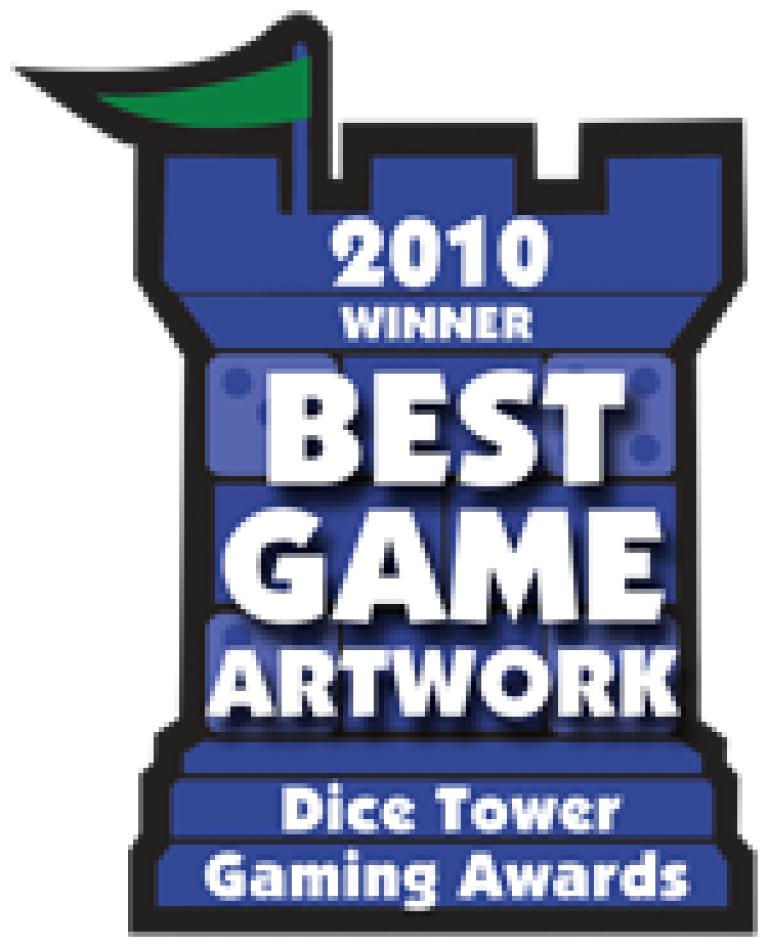
You are the leader of one of the 7 great cities of the Ancient World. Gather resources, develop commercial routes, and affirm your military supremacy. Build your city and erect an architectural wonder which will transcend future times.
7 Wonders lasts three ages. In each age, players receive seven cards from a particular deck, choose one of those cards, then pass the remainder to an adjacent player. Players reveal their cards simultaneously, paying resources if needed or collecting resources or interacting with other players in various ways. (Players have individual boards with special powers on which to organize their cards, and the boards are double-sided). Each player then chooses another card from the deck they were passed, and the process repeats until players have six cards in play from that age. After three ages, the game ends.
In essence, 7 Wonders is a card development game. Some cards have immediate effects, while others provide bonuses or upgrades later in the game. Some cards provide discounts on future purchases. Some provide military strength to overpower your neighbors and others give nothing but victory points. Each card is played immediately after being drafted, so you'll know which cards your neighbor is receiving and how her choices might affect what you've already built up. Cards are passed left-right-left over the three ages, so you need to keep an eye on the neighbors in both directions.
Though the box of earlier editions is listed as being for 3–7 players, there is an official 2-player variant included in the instructions.
7 Wonders lasts three ages. In each age, players receive seven cards from a particular deck, choose one of those cards, then pass the remainder to an adjacent player. Players reveal their cards simultaneously, paying resources if needed or collecting resources or interacting with other players in various ways. (Players have individual boards with special powers on which to organize their cards, and the boards are double-sided). Each player then chooses another card from the deck they were passed, and the process repeats until players have six cards in play from that age. After three ages, the game ends.
In essence, 7 Wonders is a card development game. Some cards have immediate effects, while others provide bonuses or upgrades later in the game. Some cards provide discounts on future purchases. Some provide military strength to overpower your neighbors and others give nothing but victory points. Each card is played immediately after being drafted, so you'll know which cards your neighbor is receiving and how her choices might affect what you've already built up. Cards are passed left-right-left over the three ages, so you need to keep an eye on the neighbors in both directions.
Though the box of earlier editions is listed as being for 3–7 players, there is an official 2-player variant included in the instructions.
Year Published:
2010
Designers:
Antoine Bauza
Publishers:
Repos Production
Best Expansion
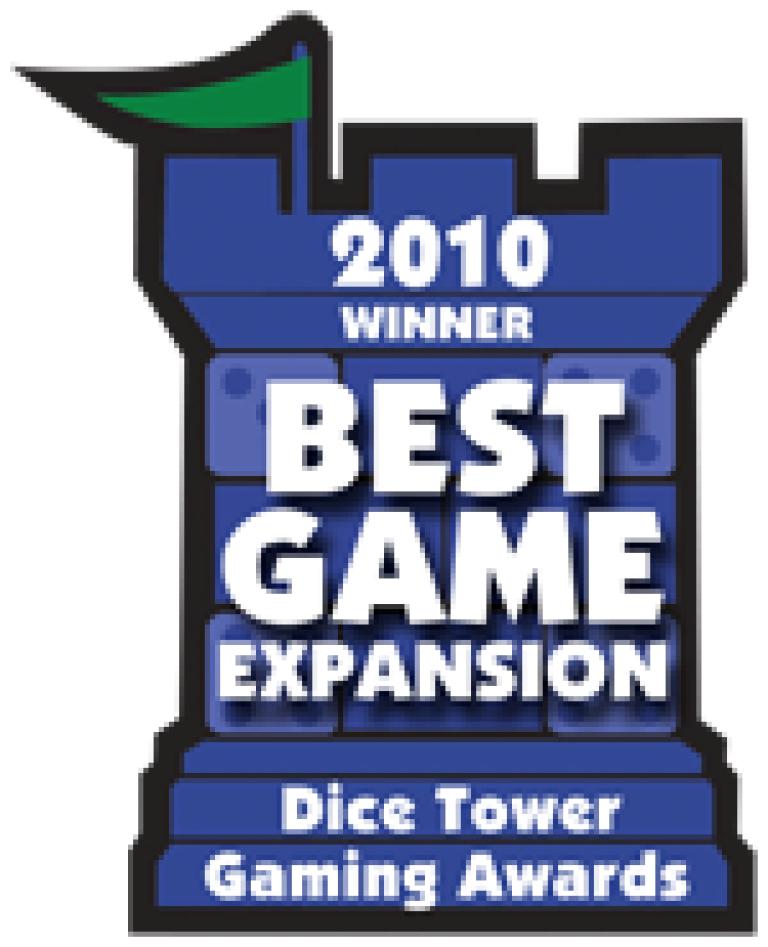
Released in late 2010, Prosperity is the 4th addition to the Dominion game family. It adds 25 new Kingdom cards to Dominion, plus 2 new Basic cards that let players keep building up past Gold and Province. The central theme is wealth; there are treasures with abilities, cards that interact with treasures, and powerful expensive cards. (Source: http://www.riograndegames.com/games.html?id=361 )
From the back of the box: "Ah, money. There's nothing like the sound of coins clinking in your hands. You vastly prefer it to the sound of coins clinking in someone else's hands, or the sound of coins just sitting there in a pile that no-one can quite reach without getting up. Getting up, that's all behind you now. Life has been good to you. Just ten years ago, you were tilling your own fields in a simple straw hat. Today, your kingdom stretches from sea to sea, and your straw hat is the largest the world has ever known. You also have the world's smallest dog, and a life-sized statue of yourself made out of baklava. Sure, money can't buy happiness, but it can buy envy, anger, and also this kind of blank feeling. You still have problems - troublesome neighbours that must be conquered.
But this time, you'll conquer them in style."
Part of the Dominion series.
From the back of the box: "Ah, money. There's nothing like the sound of coins clinking in your hands. You vastly prefer it to the sound of coins clinking in someone else's hands, or the sound of coins just sitting there in a pile that no-one can quite reach without getting up. Getting up, that's all behind you now. Life has been good to you. Just ten years ago, you were tilling your own fields in a simple straw hat. Today, your kingdom stretches from sea to sea, and your straw hat is the largest the world has ever known. You also have the world's smallest dog, and a life-sized statue of yourself made out of baklava. Sure, money can't buy happiness, but it can buy envy, anger, and also this kind of blank feeling. You still have problems - troublesome neighbours that must be conquered.
But this time, you'll conquer them in style."
Part of the Dominion series.
Year Published:
2010
Designers:
Donald X. Vaccarino
Publishers:
Rio Grande Games

Best Reprint

Survive is a cutthroat game where players seek to evacuate their pieces from an island that is breaking up, while remembering where their highest-valued pieces are located to maximize their score.
An island made up of 40 hex-tiles is slowly sinking into the ocean (as the tiles are removed from the board). Each player controls ten people (valued from 1 to 6) that they try and move towards the safety of the surrounding islands before the main island finally blows up. Players can either swim or use boats to travel but must avoid sea serpents, whales and sharks on their way to safety.
Survive is very similar to Escape from Atlantis with some key differences.
Survive was reprinted as "Survive: Escape from Atlantis!" by publisher Stronghold Games and hit store shelves in February, 2011. The reprint contains the game Survive, as well as all the extra pieces needed in order to play the game as "Escape from Atlantis" and is actually found here: Survive: Escape from Atlantis! because it came with the dolphins and dive dice which were removed from the anniversary edition which was released a couple of years later (though they were later made available by themselves for owners of that version).
"Survive: Escape from Atlantis!" is game #2 in the Stronghold Games "Survive Line".
An island made up of 40 hex-tiles is slowly sinking into the ocean (as the tiles are removed from the board). Each player controls ten people (valued from 1 to 6) that they try and move towards the safety of the surrounding islands before the main island finally blows up. Players can either swim or use boats to travel but must avoid sea serpents, whales and sharks on their way to safety.
Survive is very similar to Escape from Atlantis with some key differences.
Survive was reprinted as "Survive: Escape from Atlantis!" by publisher Stronghold Games and hit store shelves in February, 2011. The reprint contains the game Survive, as well as all the extra pieces needed in order to play the game as "Escape from Atlantis" and is actually found here: Survive: Escape from Atlantis! because it came with the dolphins and dive dice which were removed from the anniversary edition which was released a couple of years later (though they were later made available by themselves for owners of that version).
"Survive: Escape from Atlantis!" is game #2 in the Stronghold Games "Survive Line".
Year Published:
1982
Designers:
Julian Courtland-Smith
Publishers:
Parker Brothers

Best Game from a New Designer

Do you have what it takes to be a deep space colonist? An alien frontier awaits the brave and daring! This new planet will be harsh, but if you have the skills to manage your resources, build a fleet, research alien life, and settle colonies, the world can be yours.
Alien Frontiers is a game of resource management and planetary development for two to four players. During the game you will utilize orbital facilities and alien technology to build colony domes in strategic locations to control the newly discovered world.
The game board shows the planet, its moon, the stations in orbit around the planet, and the solar system’s star. The dice you are given at the start of the game represent the space ships in your fleet. You will assign these ships to the orbital facilities in order to earn resources, expand your fleet, and colonize the planet.
As the game progresses, you will place your colony tokens on the planet to represent the amount of control you have over each territory. Those territories exert influence over specific orbital facilities and, if you control a territory, you are able to utilize that sway to your advantage.
The planet was once the home of an alien race and they left behind a wondrous artifact in orbit. Using your fleet to explore the artifact, you will discover amazing alien technologies that you can use to advance your cause.
Winning the game will require careful consideration as you assign your fleet, integrate the alien technology and territory influences into your expansion plans, and block your opponents from building colonies of their own. Do you have what it takes to conquer an alien frontier?
Roll and place your dice to gain advantages over your opponent and block them out of useful areas of the board. Use Alien Tech cards to manipulate your dice rolls and territory bonuses to break the rules. Steal resources, overtake territories, and do whatever it takes to get your colonies on the map first! Don't dream it'll be easy, though, because the other players will be trying to do the same thing.
Alien Frontiers is a game of resource management and planetary development for two to four players. During the game you will utilize orbital facilities and alien technology to build colony domes in strategic locations to control the newly discovered world.
The game board shows the planet, its moon, the stations in orbit around the planet, and the solar system’s star. The dice you are given at the start of the game represent the space ships in your fleet. You will assign these ships to the orbital facilities in order to earn resources, expand your fleet, and colonize the planet.
As the game progresses, you will place your colony tokens on the planet to represent the amount of control you have over each territory. Those territories exert influence over specific orbital facilities and, if you control a territory, you are able to utilize that sway to your advantage.
The planet was once the home of an alien race and they left behind a wondrous artifact in orbit. Using your fleet to explore the artifact, you will discover amazing alien technologies that you can use to advance your cause.
Winning the game will require careful consideration as you assign your fleet, integrate the alien technology and territory influences into your expansion plans, and block your opponents from building colonies of their own. Do you have what it takes to conquer an alien frontier?
Roll and place your dice to gain advantages over your opponent and block them out of useful areas of the board. Use Alien Tech cards to manipulate your dice rolls and territory bonuses to break the rules. Steal resources, overtake territories, and do whatever it takes to get your colonies on the map first! Don't dream it'll be easy, though, because the other players will be trying to do the same thing.
Year Published:
2010
Designers:
Tory Niemann
Publishers:
Clever Mojo Games
Best Party Game
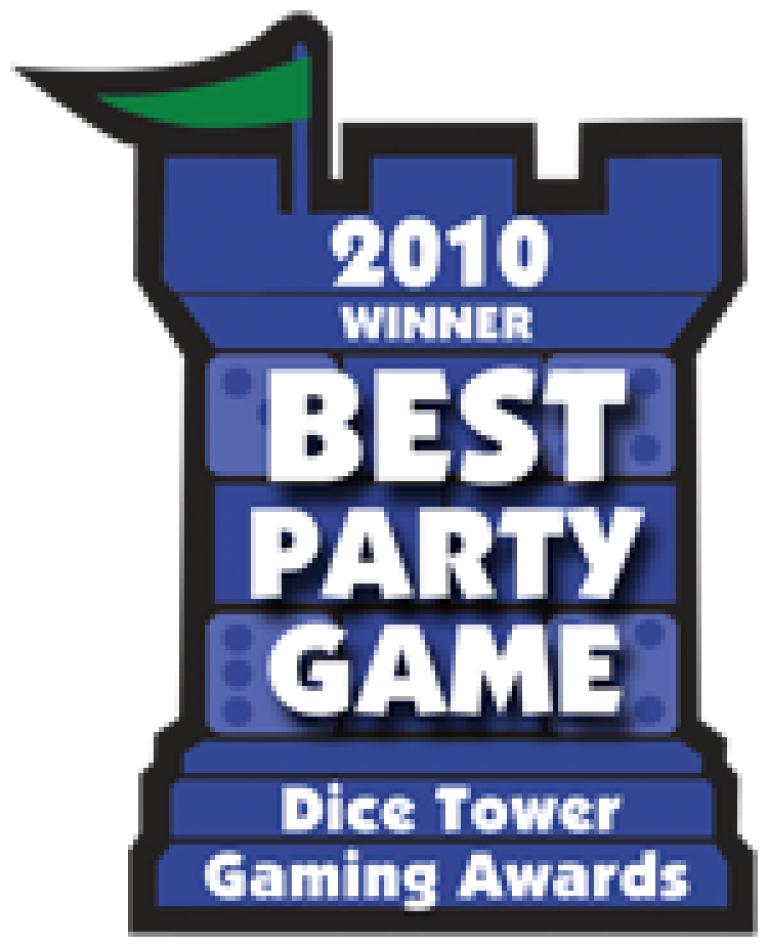
Wits & Wagers Family is the family version of the most award winning party game in history.
This edition is more simple, has less down time, and is more portable than the original Wits & Wagers. It also removes the "gambling" element and has questions that are appropriate for kids and the whole family. Most importantly, Wits & Wagers Family makes use of the beloved Meeple playing piece!
How to Play
1) A question is asked.
2) Everyone writes down a guess.
3) The guesses are placed face-up on the table and ordered smallest to largest.
4) Place your Meeples on the guess that you think is closest to the right answer.
Feeling confident? Place a Meeple on your guess.
Think your kids knows better? Place your Meeples on their guess.
Have no idea? Bet on any guess and hope you get lucky!
Scoring
You can score up to 4 points on each question:
1 point for correctly placing the Small Meeple
2 points for correctly placing the Large Meeple
1 point if your guess is closest
The first player to 15 points wins.
Contents
125 Question Cards (150 in first edition)
5 Dry Erase Boards
5 Dry Erase Pens
1 Permanent Answer Board (with a "1")
5 Large Meeples (worth 2 points)
5 Small Meeples (worth 1 point)
1 Dry Erase Score Board
1 Full-color Rules
This edition is more simple, has less down time, and is more portable than the original Wits & Wagers. It also removes the "gambling" element and has questions that are appropriate for kids and the whole family. Most importantly, Wits & Wagers Family makes use of the beloved Meeple playing piece!
How to Play
1) A question is asked.
2) Everyone writes down a guess.
3) The guesses are placed face-up on the table and ordered smallest to largest.
4) Place your Meeples on the guess that you think is closest to the right answer.
Feeling confident? Place a Meeple on your guess.
Think your kids knows better? Place your Meeples on their guess.
Have no idea? Bet on any guess and hope you get lucky!
Scoring
You can score up to 4 points on each question:
1 point for correctly placing the Small Meeple
2 points for correctly placing the Large Meeple
1 point if your guess is closest
The first player to 15 points wins.
Contents
125 Question Cards (150 in first edition)
5 Dry Erase Boards
5 Dry Erase Pens
1 Permanent Answer Board (with a "1")
5 Large Meeples (worth 2 points)
5 Small Meeples (worth 1 point)
1 Dry Erase Score Board
1 Full-color Rules
Year Published:
2010
Designers:
Dominic Crapuchettes
Publishers:
Egmont Polska
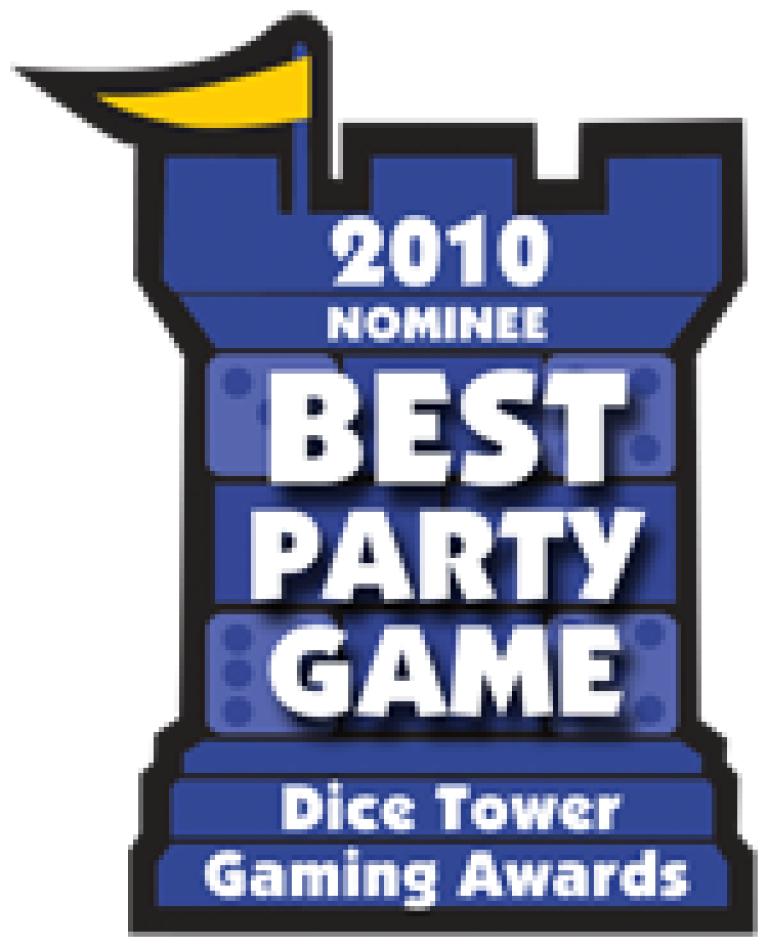
Best Board Game Production

The year is 1947. Throughout the world, three major superpowers fight to claim exclusive control over a revolutionary source of power: Vk. Elite troops and massive combat robots wage violent battles to control these energy reservoirs...
Dust Tactics is a tactical miniatures board game for 2-4 players. In an alternate 1940s reality, alien technology fuels gigantic machines of war as the forces of the Axis and Allies clash over rare mineral deposits that could inevitably decide the outcome of the war. With over 30 highly detailed miniatures, nine double-sided terrain boards, 12 custom dice, unit cards, terrain, and plastic scenery, Dust Tactics delivers everything you need to wage battles in the immersive world of Dust.
A deep and engaging game setting, featuring stunning artwork by Paolo Parente, will draw players into a world desperately at war... and the highly detailed miniatures only add to this immersion. Eight included scenarios and nearly limitless customization ensures hundreds of hours of replayability, while scalable rules offer a satisfying experience for players of all levels.
• Over 30 highly detailed miniatures
• Nine double-sided boards to customize your own battle
• A deep and engaging setting
• A battle book including eight unique scenarios
• Quick-start rules to get into the action quickly
Dust Tactics is a tactical miniatures board game for 2-4 players. In an alternate 1940s reality, alien technology fuels gigantic machines of war as the forces of the Axis and Allies clash over rare mineral deposits that could inevitably decide the outcome of the war. With over 30 highly detailed miniatures, nine double-sided terrain boards, 12 custom dice, unit cards, terrain, and plastic scenery, Dust Tactics delivers everything you need to wage battles in the immersive world of Dust.
A deep and engaging game setting, featuring stunning artwork by Paolo Parente, will draw players into a world desperately at war... and the highly detailed miniatures only add to this immersion. Eight included scenarios and nearly limitless customization ensures hundreds of hours of replayability, while scalable rules offer a satisfying experience for players of all levels.
• Over 30 highly detailed miniatures
• Nine double-sided boards to customize your own battle
• A deep and engaging setting
• A battle book including eight unique scenarios
• Quick-start rules to get into the action quickly
Year Published:
2010
Designers:
Paolo Parente
Publishers:
Dust Games

Best Game from a Small Publisher

Do you have what it takes to be a deep space colonist? An alien frontier awaits the brave and daring! This new planet will be harsh, but if you have the skills to manage your resources, build a fleet, research alien life, and settle colonies, the world can be yours.
Alien Frontiers is a game of resource management and planetary development for two to four players. During the game you will utilize orbital facilities and alien technology to build colony domes in strategic locations to control the newly discovered world.
The game board shows the planet, its moon, the stations in orbit around the planet, and the solar system’s star. The dice you are given at the start of the game represent the space ships in your fleet. You will assign these ships to the orbital facilities in order to earn resources, expand your fleet, and colonize the planet.
As the game progresses, you will place your colony tokens on the planet to represent the amount of control you have over each territory. Those territories exert influence over specific orbital facilities and, if you control a territory, you are able to utilize that sway to your advantage.
The planet was once the home of an alien race and they left behind a wondrous artifact in orbit. Using your fleet to explore the artifact, you will discover amazing alien technologies that you can use to advance your cause.
Winning the game will require careful consideration as you assign your fleet, integrate the alien technology and territory influences into your expansion plans, and block your opponents from building colonies of their own. Do you have what it takes to conquer an alien frontier?
Roll and place your dice to gain advantages over your opponent and block them out of useful areas of the board. Use Alien Tech cards to manipulate your dice rolls and territory bonuses to break the rules. Steal resources, overtake territories, and do whatever it takes to get your colonies on the map first! Don't dream it'll be easy, though, because the other players will be trying to do the same thing.
Alien Frontiers is a game of resource management and planetary development for two to four players. During the game you will utilize orbital facilities and alien technology to build colony domes in strategic locations to control the newly discovered world.
The game board shows the planet, its moon, the stations in orbit around the planet, and the solar system’s star. The dice you are given at the start of the game represent the space ships in your fleet. You will assign these ships to the orbital facilities in order to earn resources, expand your fleet, and colonize the planet.
As the game progresses, you will place your colony tokens on the planet to represent the amount of control you have over each territory. Those territories exert influence over specific orbital facilities and, if you control a territory, you are able to utilize that sway to your advantage.
The planet was once the home of an alien race and they left behind a wondrous artifact in orbit. Using your fleet to explore the artifact, you will discover amazing alien technologies that you can use to advance your cause.
Winning the game will require careful consideration as you assign your fleet, integrate the alien technology and territory influences into your expansion plans, and block your opponents from building colonies of their own. Do you have what it takes to conquer an alien frontier?
Roll and place your dice to gain advantages over your opponent and block them out of useful areas of the board. Use Alien Tech cards to manipulate your dice rolls and territory bonuses to break the rules. Steal resources, overtake territories, and do whatever it takes to get your colonies on the map first! Don't dream it'll be easy, though, because the other players will be trying to do the same thing.
Year Published:
2010
Designers:
Tory Niemann
Publishers:
Clever Mojo Games
Best War Game
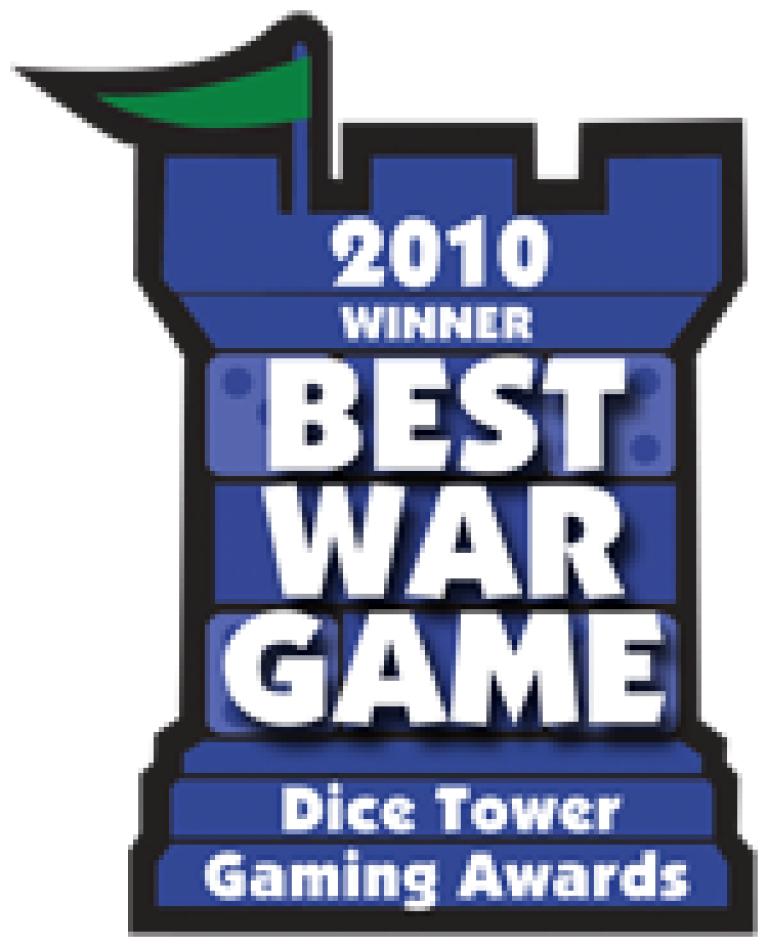
From the box:
2001: The “American Century” had closed with a single Cold War superpower standing and a pause in conflict that some at the time dubbed “The End of History”. It wasn’t.
In the Middle East and South Asia, an Islamic revival was underway. Resentments bred in part of US support for the regions’ anti-Soviet tyrannies soon erupted into a new struggle against the West. Wealthy Saudi fanatic Usama bin Ladin issued a declaration of holy war against America in 1996 and then fired the first shots with spectacular terrorist attacks on US targets in East Africa in 1998 and the Arab Peninsula in 2000.
Bin Ladin’s al-Qaeda organization plotted securely under the protection of the Taliban, a fundamentalist movement in Afghanistan born of the anti-Soviet “Bear Trap” of the 1980s. By 2001, al-Qaeda had set in motion even more devastating strikes — this time within the US Homeland — that Bin Ladin hoped would light off a global Muslim uprising. Uprising or not, the Western response to those September 11th attacks would reshape international affairs from London to Jakarta and from Moscow to Dar es Salaam.
Labyrinth takes 1 or 2 players inside the Islamist jihad and the global war on terror. With broad scope, ease of play, and a never-ending variety of event combinations similar to GMT’s highly popular Twilight Struggle, Labyrinth portrays not only the US efforts to counter extremists’ use of terrorist tactics but the wider ideological struggle — guerrilla warfare, regime change, democratization, and much more.
From the award-winning designer of Wilderness War and later Andean Abyss, Cuba Libre, A Distant Plain, and Fire in the Lake, Labyrinth combines an emphasis on game play with multifaceted simulation spanning recent history and near future. In the 2-player game, one player takes the role of jihadists seeking to exploit world events and Islamic donations to spread fundamentalist rule over the Muslim world. The other player as the United States must neutralize terrorist cells while encouraging Muslim democratic reform to cut off extremism at its roots. With the game’s solitaire system, a single player as the US takes on ascending levels of challenge in defeating al-Qaeda and its allies.
The jihadists must operate in a hostile environment — staying below the authorities’ radar while plotting terrorist attacks and building for the Muslim revolution. Will Iran’s Shia mullahs help or hinder the Sunni jihadists? Will the gradual spread of Islamist rule bring final victory — or will it be a sudden strike at the United States with an Islamic weapon of mass destruction?
The United States has the full weight of its military force and diplomacy at the ready — but it can’t be everywhere: will technological and material superiority be enough? US forces can invade and topple Islamist regimes, but how will the Muslim “street” react? And if quagmire results, how will the US find its way out?
Labyrinth features distinct operational options for each side that capture the asymmetrical nature of the conflict, while the event cards that drive its action pose a maze of political, religious, military, and economic issues. In the parallel wars of bombs and ideas, coordinated international effort is key — but terrorist opportunities to disrupt Western unity are many. The Towers have fallen, but the global struggle has only just begun. “Let’s roll!”
2001: The “American Century” had closed with a single Cold War superpower standing and a pause in conflict that some at the time dubbed “The End of History”. It wasn’t.
In the Middle East and South Asia, an Islamic revival was underway. Resentments bred in part of US support for the regions’ anti-Soviet tyrannies soon erupted into a new struggle against the West. Wealthy Saudi fanatic Usama bin Ladin issued a declaration of holy war against America in 1996 and then fired the first shots with spectacular terrorist attacks on US targets in East Africa in 1998 and the Arab Peninsula in 2000.
Bin Ladin’s al-Qaeda organization plotted securely under the protection of the Taliban, a fundamentalist movement in Afghanistan born of the anti-Soviet “Bear Trap” of the 1980s. By 2001, al-Qaeda had set in motion even more devastating strikes — this time within the US Homeland — that Bin Ladin hoped would light off a global Muslim uprising. Uprising or not, the Western response to those September 11th attacks would reshape international affairs from London to Jakarta and from Moscow to Dar es Salaam.
Labyrinth takes 1 or 2 players inside the Islamist jihad and the global war on terror. With broad scope, ease of play, and a never-ending variety of event combinations similar to GMT’s highly popular Twilight Struggle, Labyrinth portrays not only the US efforts to counter extremists’ use of terrorist tactics but the wider ideological struggle — guerrilla warfare, regime change, democratization, and much more.
From the award-winning designer of Wilderness War and later Andean Abyss, Cuba Libre, A Distant Plain, and Fire in the Lake, Labyrinth combines an emphasis on game play with multifaceted simulation spanning recent history and near future. In the 2-player game, one player takes the role of jihadists seeking to exploit world events and Islamic donations to spread fundamentalist rule over the Muslim world. The other player as the United States must neutralize terrorist cells while encouraging Muslim democratic reform to cut off extremism at its roots. With the game’s solitaire system, a single player as the US takes on ascending levels of challenge in defeating al-Qaeda and its allies.
The jihadists must operate in a hostile environment — staying below the authorities’ radar while plotting terrorist attacks and building for the Muslim revolution. Will Iran’s Shia mullahs help or hinder the Sunni jihadists? Will the gradual spread of Islamist rule bring final victory — or will it be a sudden strike at the United States with an Islamic weapon of mass destruction?
The United States has the full weight of its military force and diplomacy at the ready — but it can’t be everywhere: will technological and material superiority be enough? US forces can invade and topple Islamist regimes, but how will the Muslim “street” react? And if quagmire results, how will the US find its way out?
Labyrinth features distinct operational options for each side that capture the asymmetrical nature of the conflict, while the event cards that drive its action pose a maze of political, religious, military, and economic issues. In the parallel wars of bombs and ideas, coordinated international effort is key — but terrorist opportunities to disrupt Western unity are many. The Towers have fallen, but the global struggle has only just begun. “Let’s roll!”
Year Published:
2010
Designers:
Volko Ruhnke
Publishers:
GMT Games
Most Innovative Game
If you were directed here from the Catacombs Third Edition rulebook, then you are in the wrong forum. The game entries were split after the Catacombs Third Edition rulebook was printed. The forum for the new edition can be found at this link: https://boardgamegeek.com/boardgame/195137/catacombs-third-edition
Catacombs is an action/dexterity-based adventure board game. One player controls the Overseer, controlling the monsters of the catacombs; the other player(s) control the four heroes who cooperatively try to defeat the monsters and eventually the Catacomb Lord. Each of the heroes has special abilities that must also be used effectively if they are to prevail.
The main mechanism of Catacombs is for the players to flick wooden discs representing the monsters and the heroes. Contact with an opposing piece inflicts damage, but missiles, spells, and other special abilities can cause other effects. When all of the monsters of a room have been cleared, the heroes can move further into the catacomb. Items and equipment upgrades can be purchased from the Merchant with gold taken from fallen monsters. The Catacomb Lord is the final danger that the heroes must defeat to win the game; conversely, the Overseer wins if all of the heroes are defeated. The game is designed for quick set-up and fast play within 30 to 60 minutes.
Catacombs is an action/dexterity-based adventure board game. One player controls the Overseer, controlling the monsters of the catacombs; the other player(s) control the four heroes who cooperatively try to defeat the monsters and eventually the Catacomb Lord. Each of the heroes has special abilities that must also be used effectively if they are to prevail.
The main mechanism of Catacombs is for the players to flick wooden discs representing the monsters and the heroes. Contact with an opposing piece inflicts damage, but missiles, spells, and other special abilities can cause other effects. When all of the monsters of a room have been cleared, the heroes can move further into the catacomb. Items and equipment upgrades can be purchased from the Merchant with gold taken from fallen monsters. The Catacomb Lord is the final danger that the heroes must defeat to win the game; conversely, the Overseer wins if all of the heroes are defeated. The game is designed for quick set-up and fast play within 30 to 60 minutes.
Year Published:
2010
Designers:
Ryan Amos
Publishers:
Elzra Corp. (Elzra)
